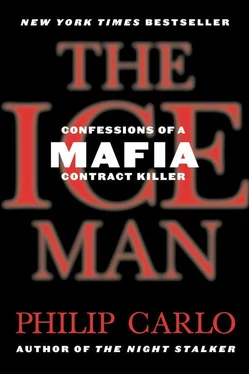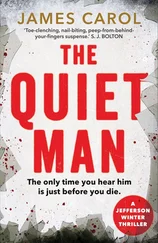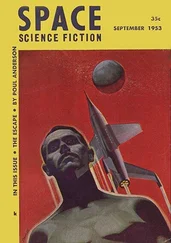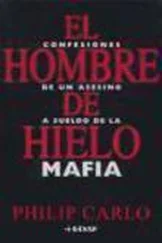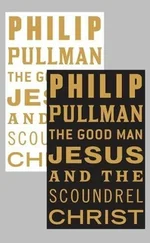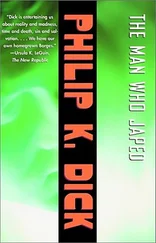Wondering where the hell Deppner and Smith had disappeared to, Kane continued to hunt for them, sensing something bigger was involved here, but not knowing what. One of the larger questions that loomed before him was where all the stolen goods had gone—televisions and VCRs, phone machines, all kinds of jewelry, guns, cars, and stereos. When Kane pressed the informant about this, he said all he knew was that Big Rich was in charge of that, that Big Rich sometimes hung around a shop in Paterson called “the store.”
“What store—what’s the name?” Kane asked.
“I don’t know,” the rodent-faced informant said. “Just ‘the store.’”
During the months that Pat Kane was trying to piece together the work of the B and E gang, Richard was particularly busy killing people. During those months alone, he filled fifteen murder contracts, all Mafia-sanctioned hits. Richard took all these victims to his garage-warehouse in North Bergen. It was an absolutely desolate area at night, perfect for Richard’s requirements, and Richard beat to death the fifteen men. He could have shot them or cut their throats, but he opted to kill them with his hands, beat them with a crowbar, a long screwdriver, hammers, and pipes. He also used the screwdriver, fifteen inches long and quite thick, to stab them and destroy their spines so they were paralyzed but still alive, and he beat them further still while they couldn’t move.
I was on a tear, he recently explained. I was beating them to death and enjoying it. It was… more personal, you know, intimate, and I… I needed the exercise. I was also doing it, I mean beating them to death, to get out my frustrations, my anger—my hatred, I guess you could say, at the world.
Richard taped the mouths of most of these victims so they couldn’t scream while he smashed and beat and destroyed their bodies. He had brought a truckload of fifty-five-gallon metal drums, which he stored in the garage. This space was wide enough to hold three cars. There was a hose hookup, and Richard used it to wash away the blood on the floor, though there were bloodstains all over the walls, and the ceiling too.
Richard got rid of these fifteen victims in two ways: inspired by DeMeo, he was now bleeding the bodies dry, then dismembering them, severing arms and legs at the joints, so he didn’t have to cut through bones. It’s easier that way. Some of these victims he wrapped up in plastic lawn bags, and he deposited different pieces in various Dumpsters he came upon. Most of them, however, he placed into the fifty-five-gallon drums in several pieces; then he cut grapefruit-sized round holes in the drums and sealed them tight by welding the metal top on. He had learned to do this because George Malliband had been discovered behind the factory in Jersey City when the top of the drum had popped off; that would not happen again. Richard then placed the drum into his van, drove through the Lincoln Tunnel, and returned to his old hunting ground, Manhattan’s West Side. Here there were miles of rotting piers where he could back up right to the water, open the rear of the van, and throw the barrels directly into the Hudson River. Because of the holes in the drums they sank right away, and in no time crabs—exceedingly efficient scavengers—began to feast on the flesh of the bodies inside the drums, easily able to get in and out, ultimately taking every bit of flesh. Because the barrels were metal, Richard knew, the salt water quickly corroded them, and the bones would be taken away with the currents of the river. Richard got this idea by watching people go crabbing along the river, and from a pirate movie in which people were fed to crabs. Thus, Richard developed another unique way of disposing of bodies. He chose to come to Manhattan’s West Side because there was so much traffic, he explained, so many vans and trucks; here, he knew, he could blend in. The piers and docks along Jersey City and Hoboken were abandoned at night, but he was more likely to get stopped by a nosy cop. On the West Side he became one with the constant hurly-burly of the city.
Interesting how Richard kept returning to the West Side, his original killing field, as though it were his alma mater, the place where he’d gone to homicide school and graduated with honors, with a doctorate in murder.
That Christmas was a joyous time in the Kuklinski home. This was Barbara’s favorite holiday. She went all out to decorate a beautiful tree and surround it with a lot of expensive gifts, all carefully wrapped, adorned with bows and fancy paper. Barbara painted Christmas scenes on the front windows, a waving Santa, reindeer, snowy hills with smiling children. Barbara and the children put up lights outside the house. Richard didn’t help with any of this. He gladly bought whatever Barbara wanted, but he didn’t pitch in. He seemed to both love and loathe Christmas. When it was time to pick out the tree, Barbara and Richard went to a tree farm, and he held up different trees so she could decide which one was best. About this Barbara was the boss. About all things relevant to the holidays, she was the boss. She chose a huge tree, as usual, and Richard dutifully carried it to the car, then into the house, where he put it into an oversized stand. Barbara and the kids had carefully, lovingly, decorated the tree, as Richard watched, seeming to enjoy it, but not participating. Barbara would have preferred if he weren’t there, because with him present there was tension. One never knew, she says, when he could go off. Barbara had Christmas carols playing on the stereo, Johnny Mathis and Barbra Streisand singing the Christmas classics.
Daughter Merrick now had a steady boyfriend, Richie Peterson, and he too helped decorate the tree. Richie Peterson was six foot six, had blond hair and blue eyes. Richard seemed to like him, though in the near future Peterson would finger Richard and talk up a storm.
That Christmas Eve Barbara had prepared her customary feast of all kinds of fish. Richard acted… strange; he had extreme highs and lows. Christmas reminded him of his childhood, of Stanley—the abuse, Florian’s loss—and he inevitably became depressed. On the other hand, he very much enjoyed buying gifts for the children, watching the decorating. Nothing was too good for his children. He gave Barbara whatever money she said she needed. No problem. No questions. Take it.
Barbara knew well how Richard could become quiet and gloomy during the holidays, just sit in his big easy chair and stare at the floor; stare as if he were seeing things from a long time ago; stare as if he were seeing something—someone—he wanted to hurt. Barbara did her best to keep the mood happy, but with Richard it was an uphill battle.
Christmas morning Barbara’s mother and her boyfriend, Primo, came over early, to be there when they opened their gifts. Richard put on a red Santa cap and a red Santa shirt and happily gave out the gifts. This he seemed to enjoy immensely. He’d pick up a gift, read out the name on it, and, smiling, hand the gift out. This, for Richard, was a joyous time, what he had pined for as a child and never had. This was the best life could offer: to be surrounded by a loving family, everyone happy and smiling and filled with good cheer.
After the opening of gifts, Richard took the whole family for breakfast at the Seville Diner in Westwood. Merrick’s boyfriend, Richie Peterson, was there too. Barbara had gotten him a blue cashmere sweater for Christmas, which he proudly wore now. Merrick was a full six feet tall, and she and Richie were an attractive, though imposing, couple wherever they went.
Later they sat down to Christmas dinner, a six-course feast that consisted of antipasto, shrimp cocktails, salad, ham and roast beef, rosemary potatoes, stuffed artichokes, and mushrooms, followed by pastries, fruit, coffee, and nuts, as was the Italian custom. They then played bingo.
Читать дальше
